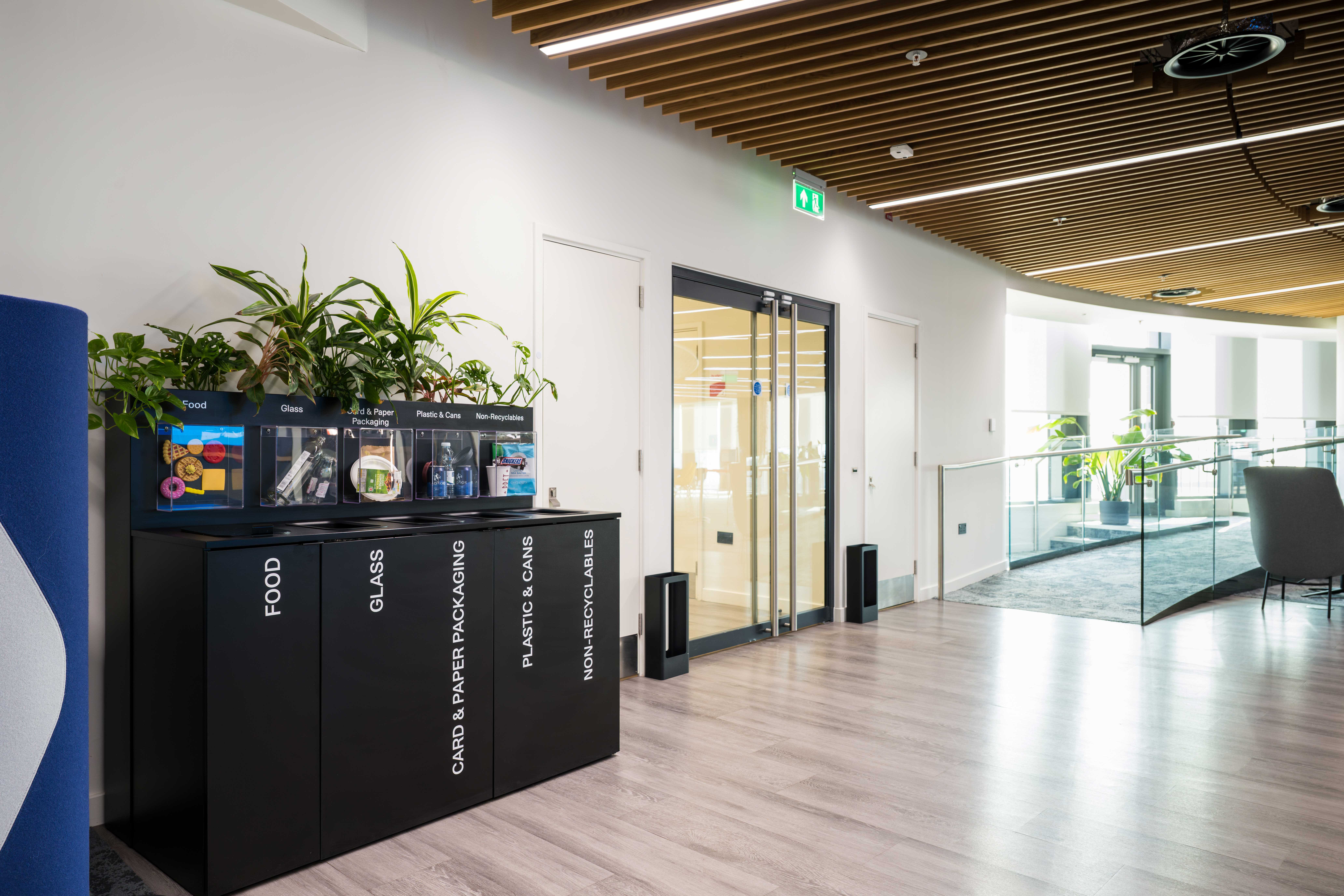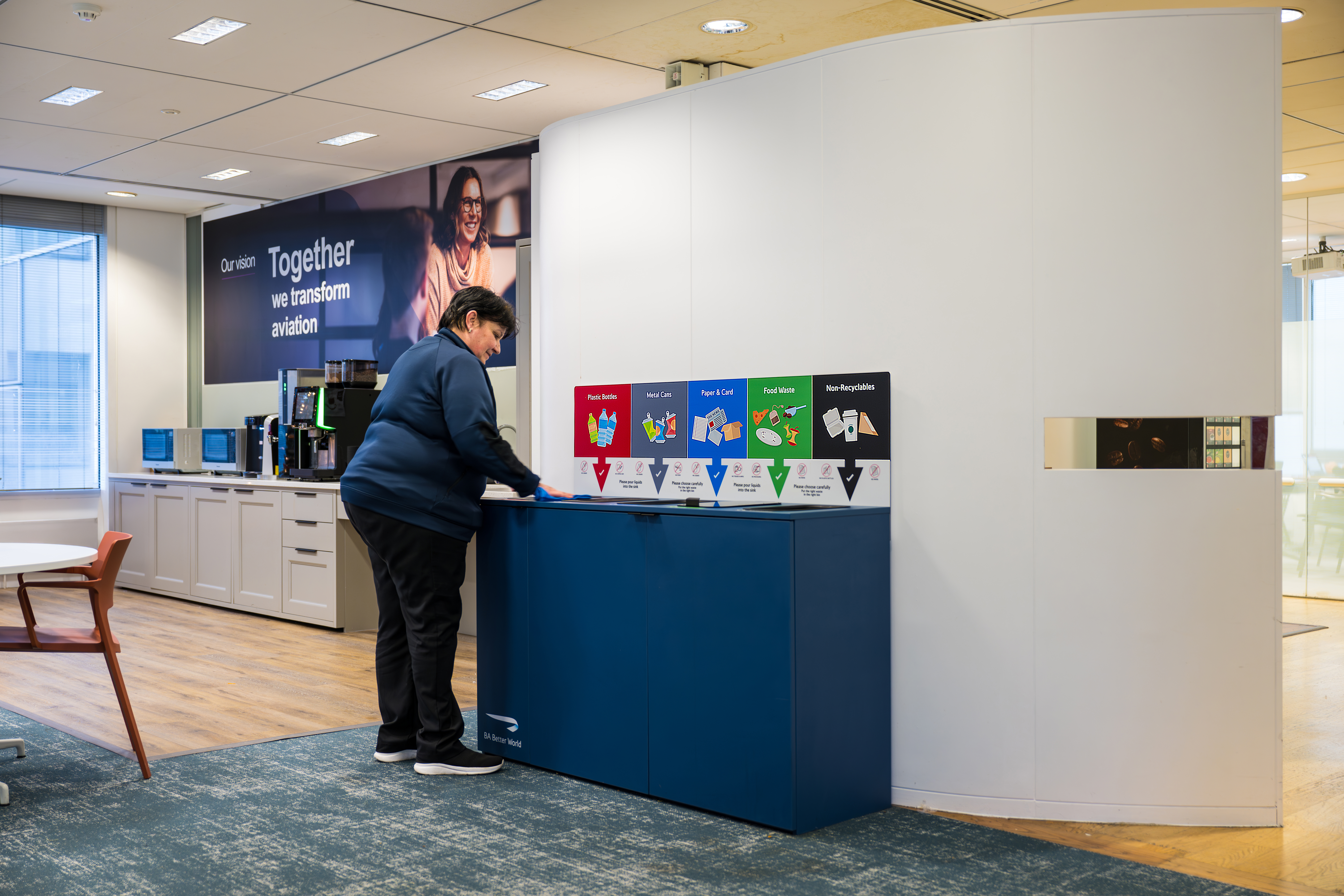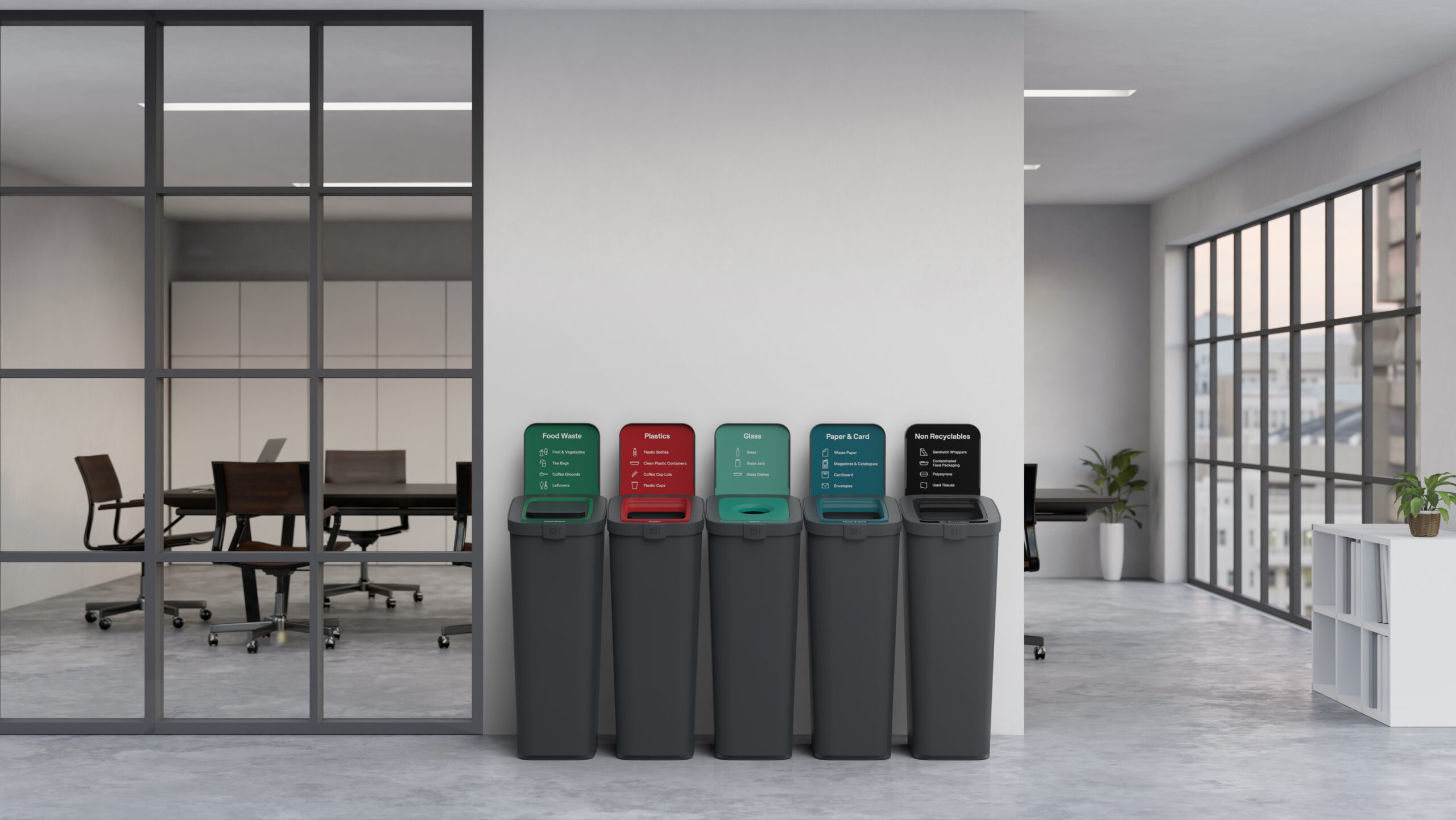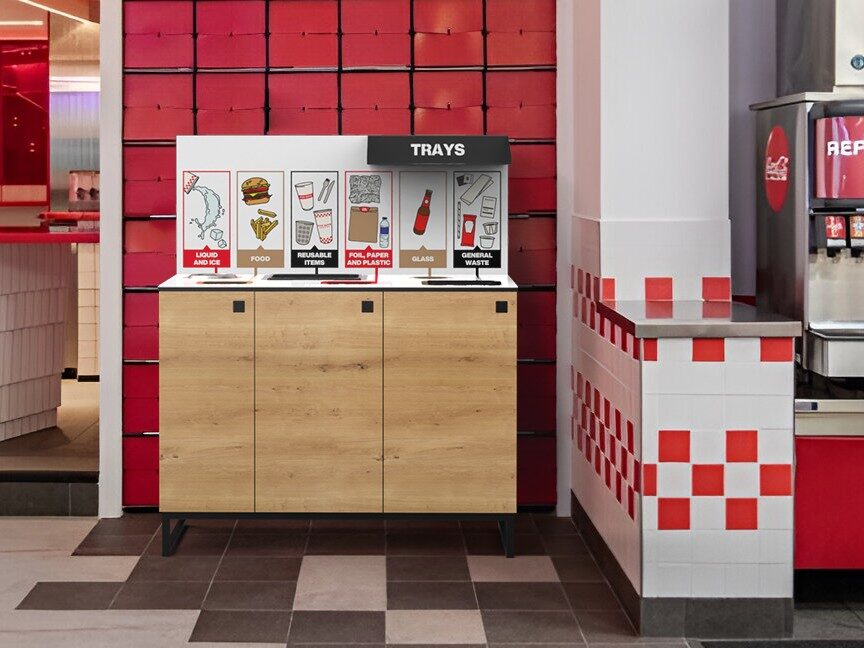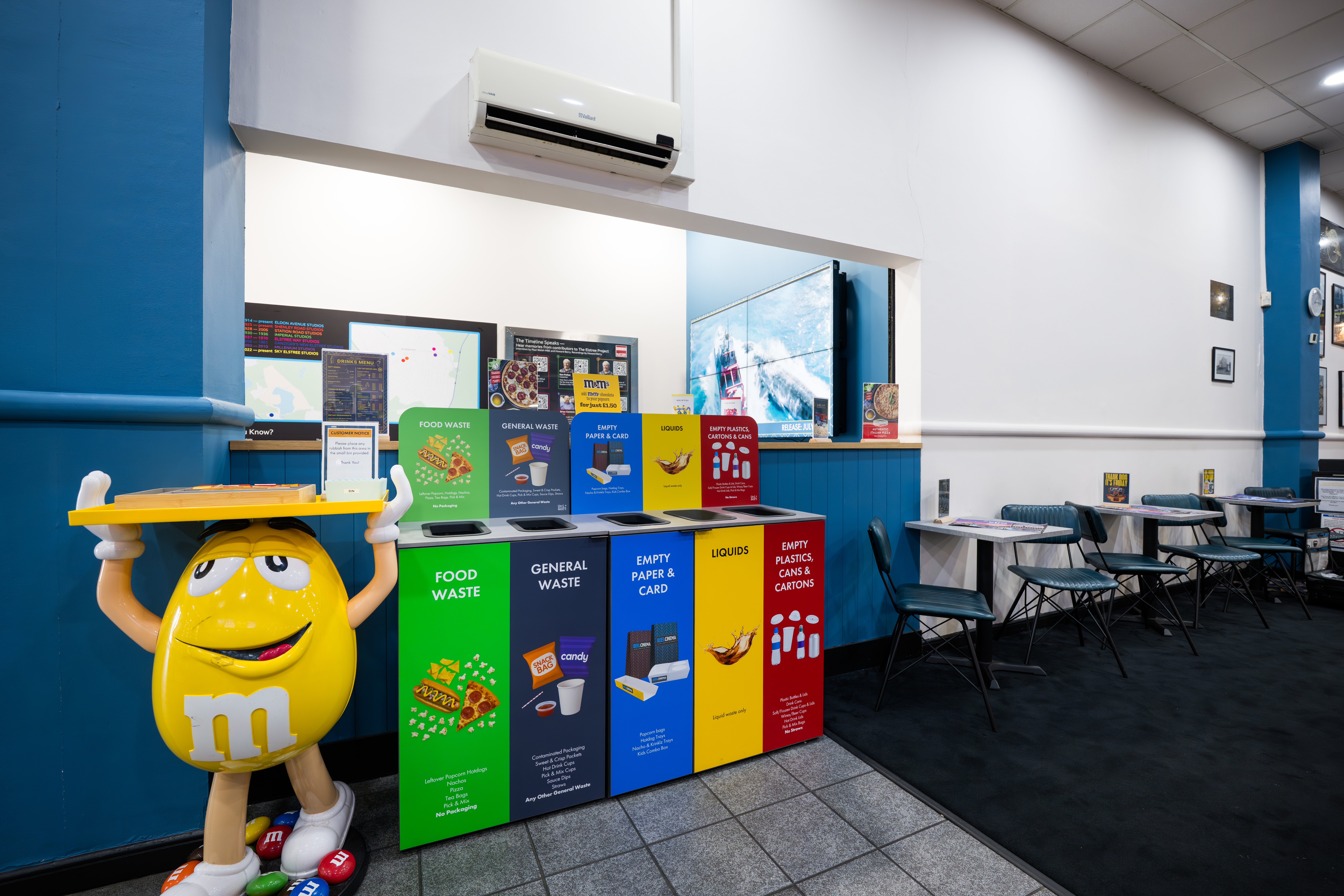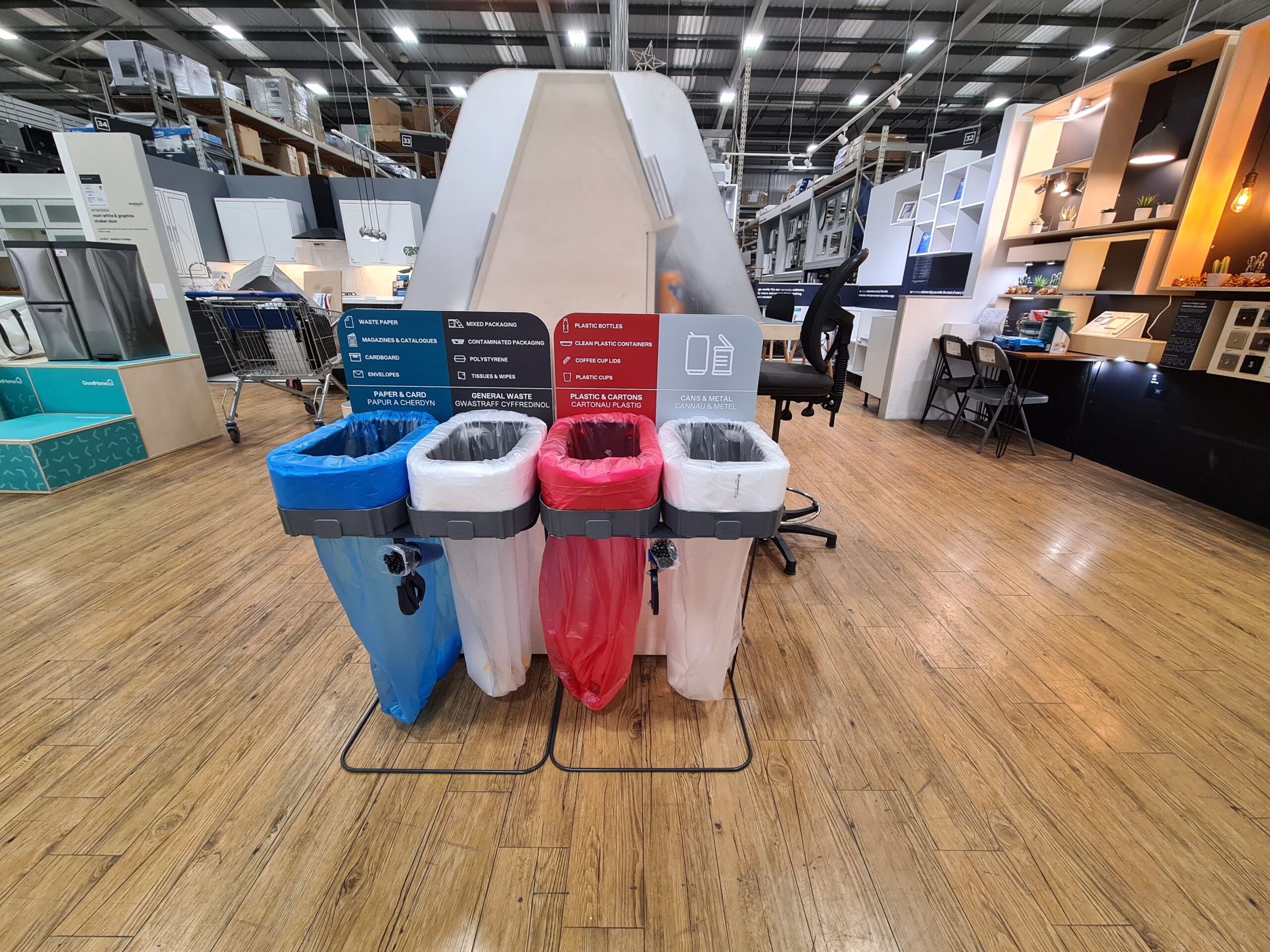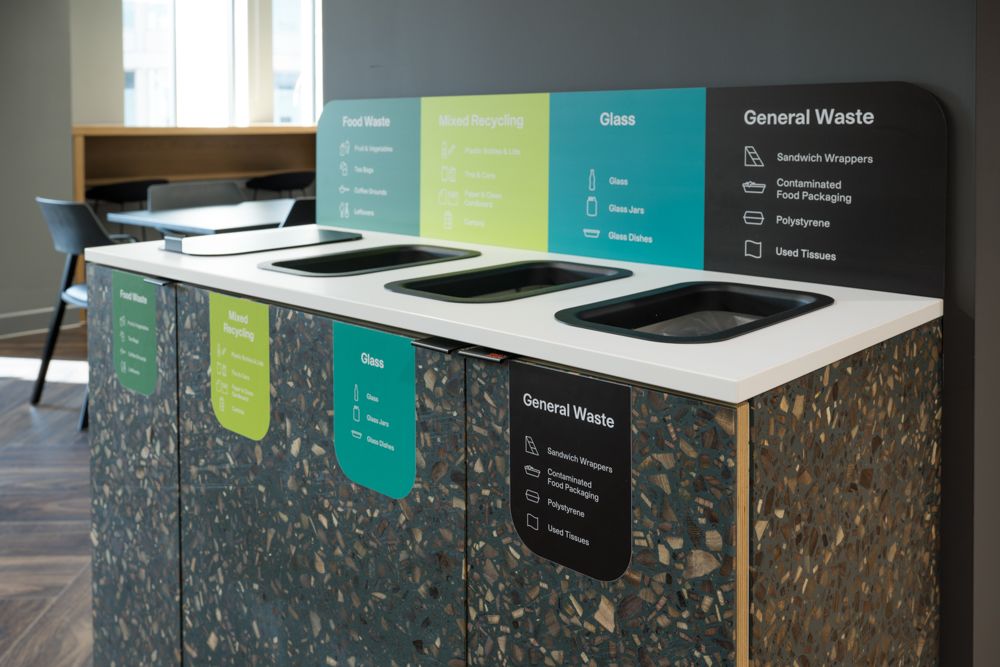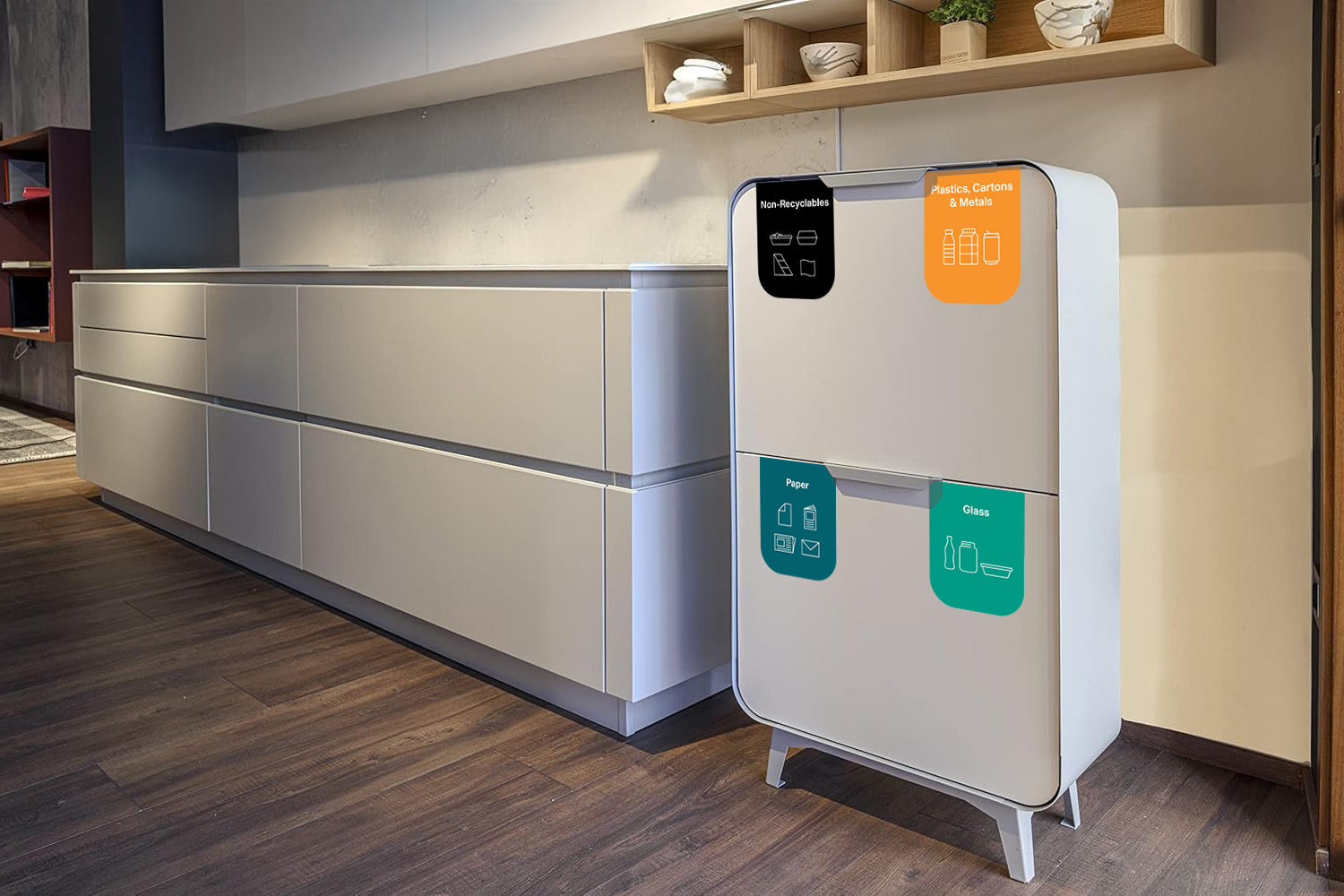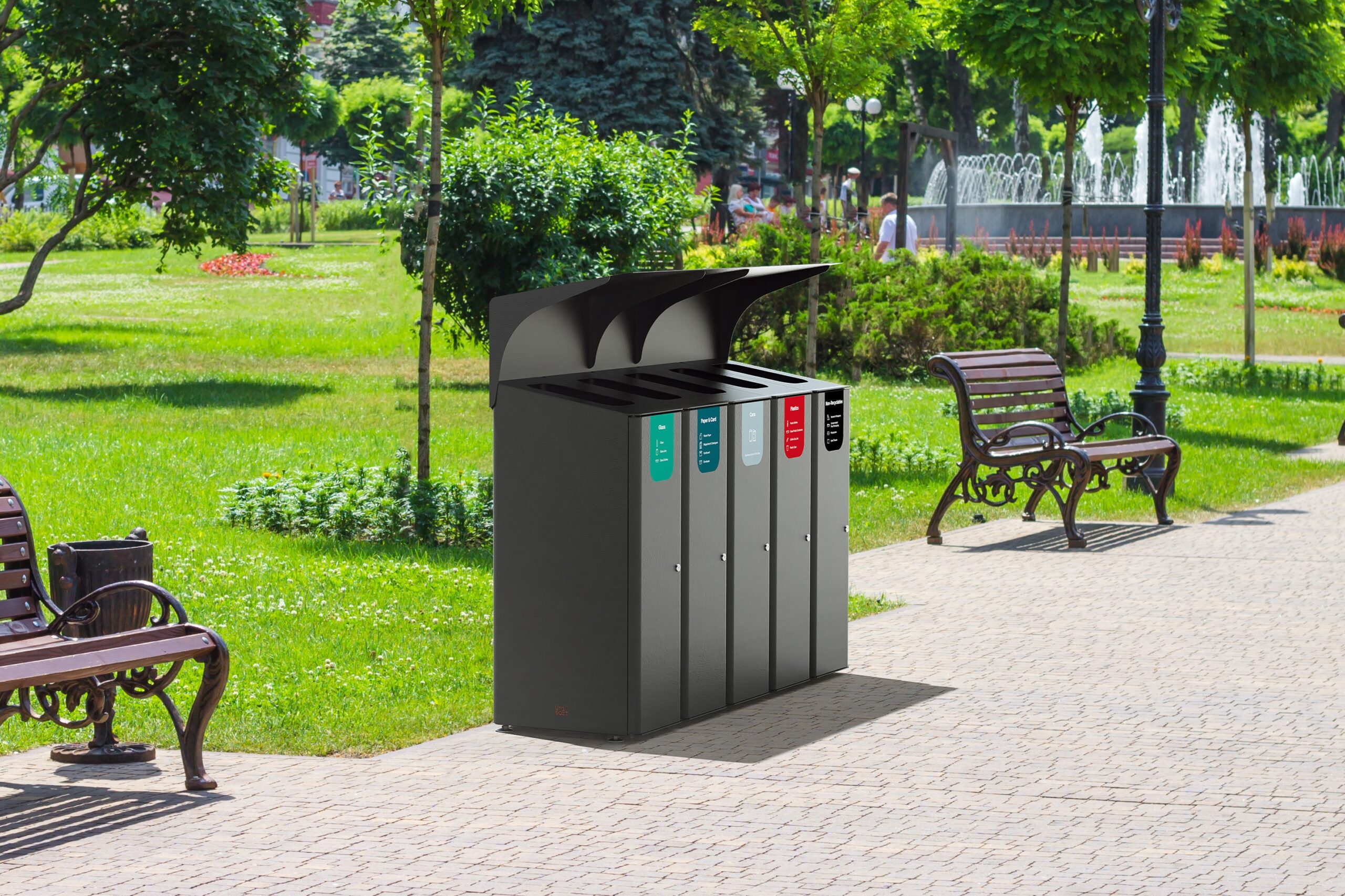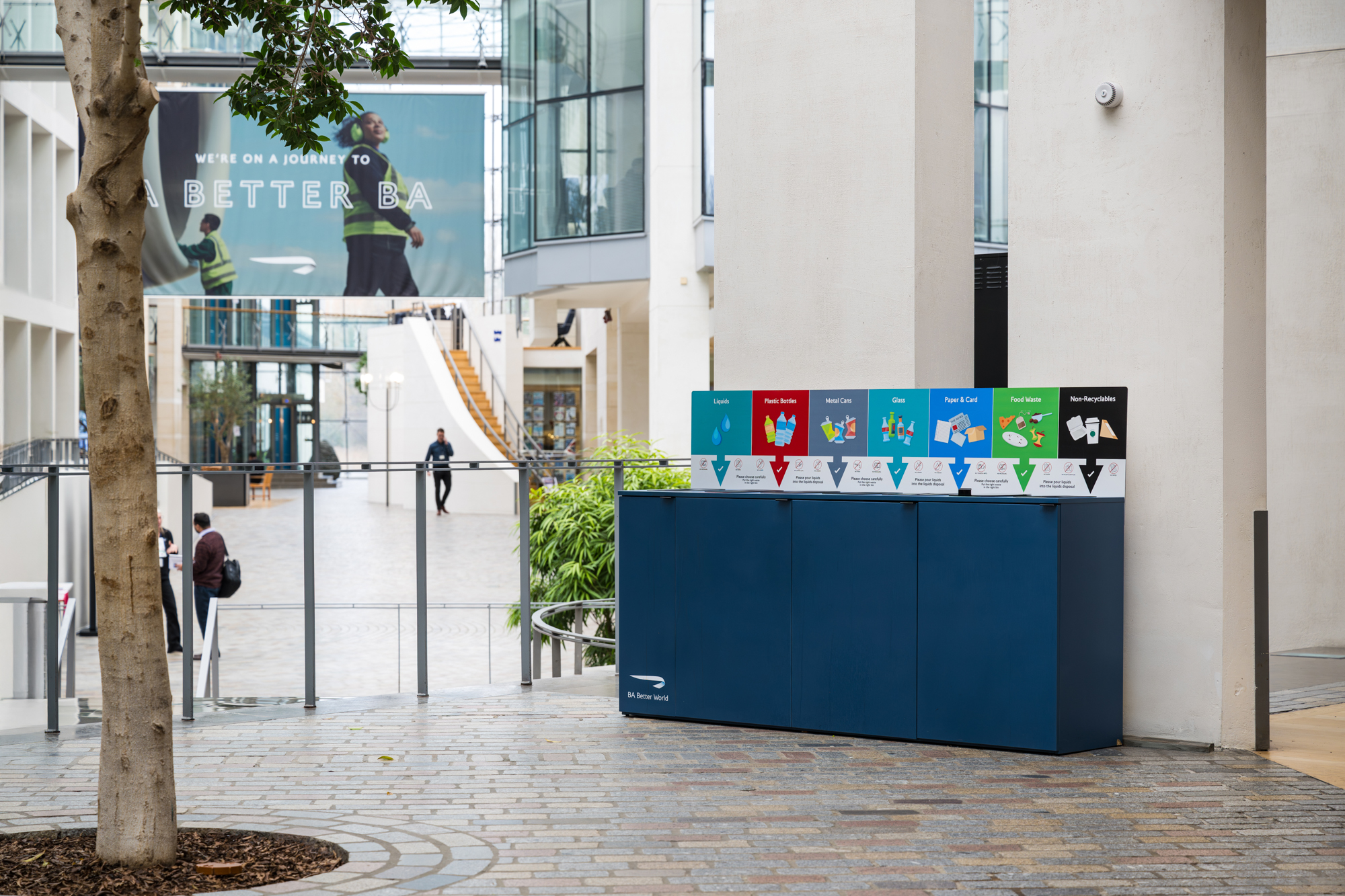If a decade of building recycling systems for workplaces has taught us one thing above all: design drives behaviour.
At Unisort, we’ve spent 10 years helping 1,700+ organisations rethink their “binfrastructure,” reduce plastic waste by up to 80%, and boost recycling rates by as much as 52%. Along the way, we’ve learnt what works, what fails, and what truly improves recycling habits and creates lasting change.
Here are the 10 most important lessons we’ve learnt.
10 Lessons from 10 Years
1. Design Drives Behavioural Change
UK businesses produce 4 million tonnes of commercial & industrial (C&I) waste annually.
When recycling stations are designed to be intuitive and visually clear, people recycle more.
That’s why every Unisort recycling station uses colour-coded apertures, icons, and shape-based openings to eliminate hesitation (the 2-second pause) and make correct disposal second nature.
2. Keeping It Simple & Getting Specific Removes Confusion
Generic “mixed recycling” waste streams often cause more contamination than results.
Very specific waste streams, e.g Plastic Bottles”, “Food Waste”, “Paper & Card”, with clear signage that is colour coded and uses icons, helps to make recycling easier, engaging, efficient, and far more accurate in helping organisations achieve their recycling targets.
3. Custom Solutions, Consistent Success
No two workplaces are the same. Floorplans, aesthetics, and waste stream demands all differ.
At Unisort, our tailored, design-led recycling stations focus on improving recycling engagement and performance with specific waste streams, aesthetic design features to blend with your interior design and branding options – ensuring your recycling systems seamlessly integrate into your space, never as an afterthought.
4. Branding Boosts Engagement
Demonstrate that your brand cares about sustainability by branding up your recycling stations with your logo or campaign slogans. Recycling works best when it feels naturally integrated into the spaces people use every day.
That’s why our bespoke design-led stations are built to complement any environment, indoors or outdoors, without looking like an afterthought. With tailored signage, specific waste stream options, and finishes that match your workspace, recycling becomes easier and intuitive.
5. Efficiency Saves Money
The Unisort Liner System reduces plastic liner usage by up to 80% and cuts labour time by 38%.
That’s money and hours reclaimed every day for your business, while making liner changes smoother, safer, and more hygienic.
Stronger than standard bags and made from a 3-ply formulation, our liners use less plastic but deliver 4x the strength.
The result?
✔️ Lower collection costs
✔️ Less wasted plastic
✔️ A cleaner, more efficient workplace
✔️ A higher ROI from your waste budget
6. Consistency Builds Correct Recycling Habits
When stations are scattered or signage is inconsistent, recycling behaviour can break down. Staff default to what’s closest and easiest, not what’s correct, leading to contamination, lower recycling rates, and rising collection costs.
Site-wide standardisation solves this. By providing clear signage, consistent waste streams, and design-led stations across every floor and area, you make recycling intuitive, not confusing.
The result is stronger habits, higher engagement, and measurable progress toward your recycling goals.
7. Innovation Creates Impact
Practical innovation is what keeps recycling systems effective and future-ready.
With the Unisort Liner System reducing plastic use and labour time, and the Unisort Stack recycling stations delivering compact, modular, and design-led solutions, innovation becomes measurable progress.
Scalable, flexible, and built to adapt, these solutions grow with your organisation, tackling today’s recycling challenges while preparing you for tomorrow’s.
8. Recycling Must Be Measurable
Without data, progress is invisible.
Tracking contamination reduction, plastic savings, and recycling performance is essential to keeping improvements clear and credible.
WRAP data shows that over 80% of people in the UK report putting non-recyclable items into recycling units. This highlights the importance of monitoring recycling waste streams and addressing areas of confusion.
Unisort supports this by providing recycling stations that make correct waste separation easy and intuitive.
With clear signage, and modular configurations organisations can reduce general waste by up to 52%, cut plastic usage, and continuously improve their recycling efforts.
9. Training Unlocks Engagement
Recycling infrastructure alone isn’t enough to depend on. Even the most advanced systems can fall short if staff aren’t confident in how to use them.
That’s where Unisort’s Recycling Engagement Training Sessions come in. These tailored, hands-on sessions equip staff with the knowledge and confidence to use recycling systems correctly, reducing contamination and improving efficiency.
By embedding recycling into daily routines, businesses can achieve long-term behavioural change, higher recycling rates, and a workplace culture that actively supports sustainability goals.
The benefits of training sessions include:
- Reduced contamination across waste streams
- Lower waste management and collection costs
- Staff who feel confident, informed, and engaged
- Improved recycling performance aligned with compliance targets
- Long-lasting behavioural change that sustains results
10. Sustainability and ROI Align
Sustainability isn’t a cost, it’s a performance advantage.
Efficient recycling systems reduce spending on liners, waste collections, and staff time while supporting corporate sustainability goals.
5 Bonus Tips to Skyrocket Your Recycling
Ready to go further and hit your recycling targets? These proven approaches can take your results to the next level:
1. Engage Your Team with Training
On-site or virtual sessions create confident, empowered employees who recycle correctly every time
2. Focus on Food Waste
Waste savings aren’t just environmental. Food makes up 25% of the average rubbish bag in the UK, and 80% of it could have been eaten.
Food waste is one of the biggest causes of contamination in the workplace.
Dedicated food waste streams accompanied by clear signage are essential. By recycling correctly, you protect other waste streams from contamination and unlock higher recycling rates across your business.
3. Standardise Across Multiple Sites
Rolling out a consistent recycling system across offices, warehouses, and campuses removes confusion and delivers measurable results everywhere.
4. Measure Your Success
Use audits and data tracking to measure recycling rates and contamination reductions so you can share progress and celebrate success with your team.
5. Listen to Real Feedback
“Since working with Unisort, our general waste has reduced by 52%.” – NatWest
Testimonials like this prove what’s possible with the right waste systems and a people-focused approach.
Smarter Recycling, Proven Results
From tailored recycling stations to training programmes and full-site audits, Unisort helps organisations across the UK reduce contamination, improve recycling rates, and achieve their sustainability goals.
Get in touch today to discuss how Unisort can support your business’s recycling efforts and ensure your business remains compliant.
